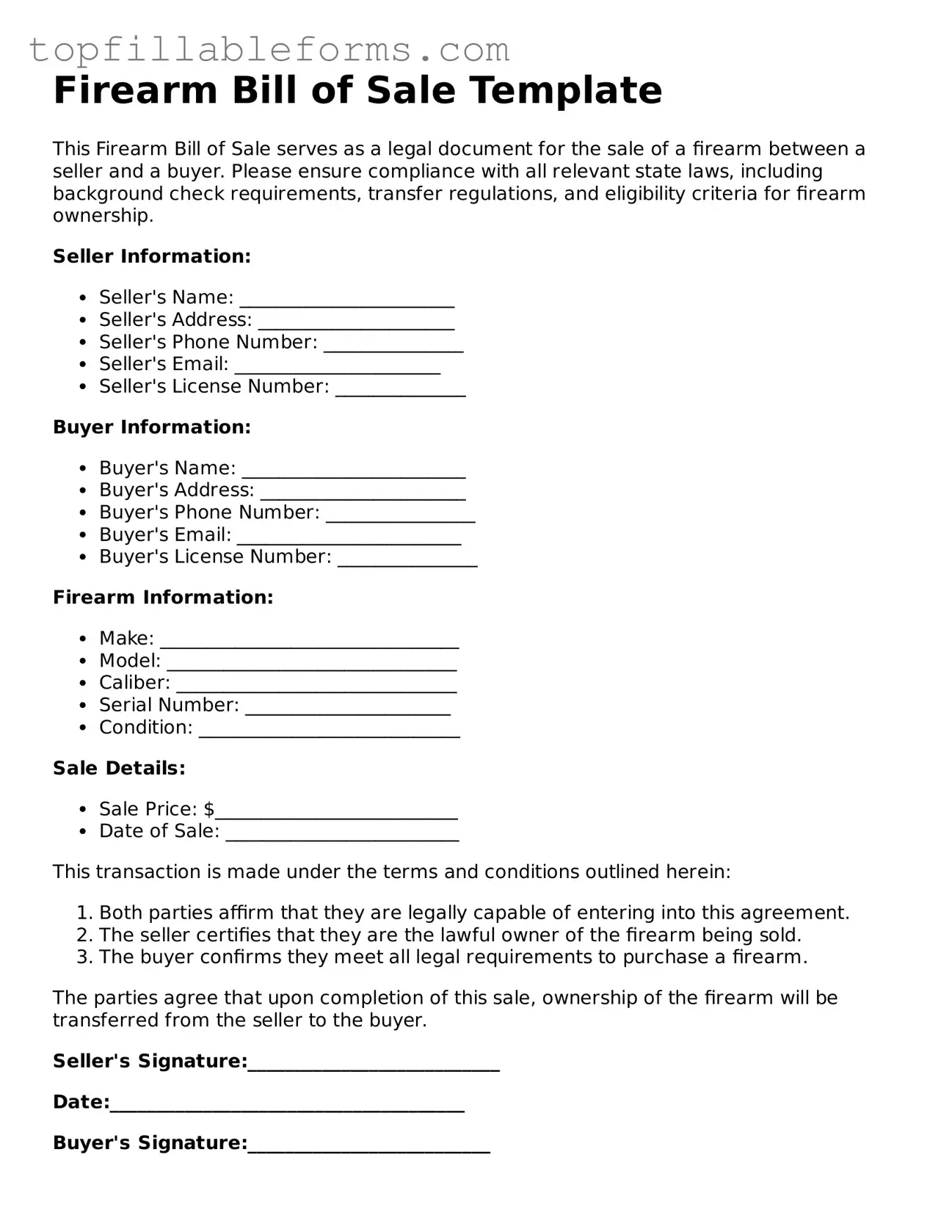Free Firearm Bill of Sale Form
The Firearm Bill of Sale form is a legal document that records the transfer of ownership of a firearm from one individual to another. This form serves as proof of the transaction, detailing important information such as the buyer and seller's identities, the firearm's description, and the sale date. Properly completing this form can help protect both parties involved in the sale and ensure compliance with local and federal laws.
Open Firearm Bill of Sale Editor Here

Free Firearm Bill of Sale Form
Open Firearm Bill of Sale Editor Here
Finish the form now and be done
Finish your Firearm Bill of Sale online by editing, saving, and downloading fast.
Open Firearm Bill of Sale Editor Here
or
▼ PDF File
